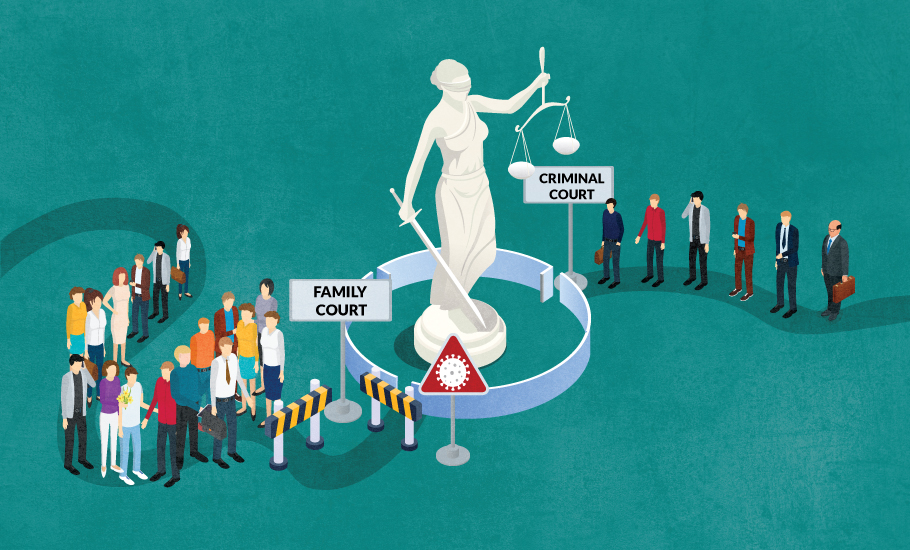
- Home
- India
- World
- Premium
- THE FEDERAL SPECIAL
- Analysis
- States
- Perspective
- Videos
- Sports
- Education
- Entertainment
- Elections
- Features
- Health
- Business
- Series
- In memoriam: Sheikh Mujibur Rahman
- Bishnoi's Men
- NEET TANGLE
- Economy Series
- Earth Day
- Kashmir’s Frozen Turbulence
- India@75
- The legend of Ramjanmabhoomi
- Liberalisation@30
- How to tame a dragon
- Celebrating biodiversity
- Farm Matters
- 50 days of solitude
- Bringing Migrants Home
- Budget 2020
- Jharkhand Votes
- The Federal Investigates
- The Federal Impact
- Vanishing Sand
- Gandhi @ 150
- Andhra Today
- Field report
- Operation Gulmarg
- Pandemic @1 Mn in India
- The Federal Year-End
- The Zero Year
- Science
- Brand studio
- Newsletter
- Elections 2024
- Events
- Home
- IndiaIndia
- World
- Analysis
- StatesStates
- PerspectivePerspective
- VideosVideos
- Sports
- Education
- Entertainment
- ElectionsElections
- Features
- Health
- BusinessBusiness
- Premium
- Loading...
Premium - Events

Pending cases in Kerala’s family courts mount to frustrating heights

In 2018, Beena (name changed), a typist in the Kerala Police department, realised that her 15-year-long marriage was emotionally dead and beyond repair. That is when she decided to end the suffering and call it off. However, when the matter reached a Kerala family court, Beena found her suffering multiplied several times over. The COVID-19 pandemic, too, added to her woes. At the time of...
In 2018, Beena (name changed), a typist in the Kerala Police department, realised that her 15-year-long marriage was emotionally dead and beyond repair. That is when she decided to end the suffering and call it off.
However, when the matter reached a Kerala family court, Beena found her suffering multiplied several times over. The COVID-19 pandemic, too, added to her woes. At the time of the wedding, Beena was gifted 42 sovereigns of gold by her parents. The gold is still in the possession of her husband and Beena is paying instalments of the loan taken for the family before her separation. The wait for divorce has been so frustrating that Beena is ready to forsake her claim on the gold. All she wants is divorce. “I don’t want anything. I am feeling frustrated to the core. I just want divorce, nothing else,” Beena told The Federal.
A visit to any family court in Kerala would reveal why Beena wants to give up the fight. Scores of men and women who line up at the family courts seeking resolution to matrimonial issues, custody, or maintenance for their children, go through the same trauma of an endless wait and complete uncertainty over when life would get back to normal.
What makes Kerala’s case different is that the state is among the frontrunners in the number of litigations in family courts. The division bench of the High Court of Kerala recently observed, “The state of Kerala, which accounts for 3 per cent of the country’s population, has one of the highest numbers of matrimonial cases in the nation.” The bench made the observation while disposing of a batch of petitions seeking resolution for the problems being faced by litigants due to the inordinate delay in disposal of cases by the state’s family courts.
A long wait
As on May 31, 2021, Kerala had a staggering 1,06,103 pending cases in the family courts. An analysis of figures from 2010 onwards points at a rising pendency. In 2010, the number of pending cases was 36,309, which almost doubled to 77,327 in 2019. This figure crossed one lakh in 2020.
Shockingly, the restriction imposed in the wake of COVID-19 pandemic saw a huge spurt in pendency with over 10 lakh cases awaiting resolution as on May 31, 2021, translating into a rise of 900 per cent. The information was shared by Union Ministry of Law and Justice in response to a Right to Information plea filed by one Ajay S Kumar from Thiruvananthapuram.
The situation in other states is no better. According to the National Judicial Data Grid, matrimonial disputes currently account for 7.87 per cent of the pending civil cases in the country.
However, if one looks at cases pending for less than a year, the share of matrimonial disputes rises to 14.57 per cent of the total pending civil cases in the country.
India’s most populous state, Uttar Pradesh, has 78 family courts, the highest for any state or Union Territory. In UP, currently, 9 per cent of the total pending civil cases are related to marriages. But of the cases pending for less than a year, the share of matrimonial disputes jumps to 23.91 per cent.
In Bihar, with 39 family courts, marriage disputes currently account for nine per cent of the total civil cases backlog. This increases to 17.8 per cent for cases that are pending less than a year.
In Maharashtra, with 16 family courts, marital disputes currently make up 9.8 per cent of the total pending civil cases. This rises to about 20 per cent when one looks at cases pending for less than a year.
“The lawyers are as helpless as the litigants sometimes,” says advocate Athira P M. According to her, cases are now being adjourned to 2022. “The courts have to give preference to older cases, hence cases being filed afresh get postponed beyond several months,” adds the lawyer who is practising in family courts and trial courts in Kerala.
Twenty-eight-year-old Afeela has two young children aged nine and six. She was married at the age of 18 and continued the relationship for years suffering domestic violence and abuse. She finally separated and filed a plea for maintenance in 2018 for the children and herself, but her case is still pending in the family court.
Afeela, who now lives with her parents and younger brother, is reluctant to seek a job despite the hardships. “He (the husband) is spreading rumours about me. My brother told me not to work. If I do so, my husband will continue to harass me,” says Afeela. She and her children are now dependent on Afeela’s father who is a fisherman.

Afeela says her husband and his parents harassed her for dowry. “He took all my gold and bought a piece of land that was registered in his name. Now, he is trying to sell it off.” Afeela has filed cases for maintenance, for ornament recovery and an injunction suit to block the sale of the land.
In a September 2021 order, the Delhi High Court insisted that family courts are expected to “act with due application of mind without being hyper technical”.
In Ajay Dube Vs. Annapurna case, the division bench of the Delhi High court observed, “The family court is obliged to function so as to relieve the parties of the suffering that they are going through on account of matrimonial disputes… The family court should have a litigant-friendly approach, and function in the spirit of helping parties resolve their disputes – either mutually, or through the court’s determination.”
Unfortunately, there are examples to show how the family courts do just the opposite. Beena’s story is one such instance. “Her husband filed several cases against her only with the intention to harass her. Courts have a duty to apply their minds. He filed a petition that she should not get remarried before the divorce proceedings are completed. A second marriage before completing the process of divorce of the first marriage is out of question, according to the Hindu Marriage Act. The court should not have even received and numbered it, but the court accepted it and kept it for further proceedings,” says advocate Athira.
Rising pendency
With the courts’ functioning coming to a complete halt due to the pandemic and lockdowns that ensued, it does not come as a surprise that the pendency across courts have risen at alarming rates, according to Reshma Sekhar, senior resident fellow at Vidhi Centre for Legal Policy.
“The data from the National Judicial Data Grid (NJDG) reveals that pendency rose by 10.35% in the Supreme Court, 20.4% in 25 high courts and 18.2% in district courts over the last year,” Sekhar told The Federal.
What the judiciary needs to address on a war-footing, she added, is implementable policies that will help courts decide on these large volumes of cases while at the same time ensuring access to justice to its litigants during these unprecedented times. “Among others, this includes transforming technological infrastructure and ensuring internet connectivity to allow for functioning online.”
Twenty-eight-year-old Neethu, who has two children and works as a delivery personnel with an online food delivery company in Kozhikode, filed petitions for maintenance and divorce in 2018. “I am struggling hard to feed my children. I get only Rs 21 per delivery. Unlike men, I cannot work at night since it is not safe.”
“I am not in a hurry to get a divorce, but I really wish my maintenance petition is settled at the earliest.”
In a 2014 judgment in the Bhuwan Mohan Singh Vs Meena and Others case, the Supreme Court observed: “A delay in adjudication by the family court is not only against human rights but also against the basic embodiment of dignity of an individual.”
In both Beena and Afeela’s cases the lawyers managed to get execution orders on the gold recovery petitions. “But all such executions are temporarily suspended considering the pandemic restrictions,” said Athira.
“The courts and governments have suspended all execution orders of recovery considering the financial burden on the people caused by the pandemic. Unfortunately, women are the worst affected.”
Experts say in order to expedite case closures, the grounds for divorce in various personal laws have to be revisited. For instance, it is often hard to prove cruelty which is a ground for divorce, said advocate Sandhya J. “The law looks at it with a conservative eye. Only explicit violence is recognised as cruelty, passive aggression and mental torture are still not being considered seriously by the courts.”
Obsolete framework
Archaic framework of the grounds for divorce creates hindrance in the speedy disposal of cases. The cold shouldering approach to the cases filed under Domestic Violence Act has also led to a rise in divorce. “The Domestic Violence Act has lost its teeth as the cops have almost stopped acting upon it. Now divorce is the only way to end the insult and injury that a woman goes through in a conjugal relationship,” added Sandhya.
The lack of information about legal proceedings and the inability to access information, too, make women more vulnerable. A case in point is that of 58-year-old Sharada.
Sharada married at the age of 51. She was deserted by her husband a couple of years ago. When The Federal talked to her, she said her husband, despite being financially sound, demanded dowry. According to her lawyer, the court has issued an execution order in her petition for maintenance. “We have asked her to get information about his properties for proceeding with the attachment process. But she has no idea about his properties and she hardly knows how to collect information. There is no one to help,” said the lawyer.
Before marriage, Sharada was availing pension for unmarried single women. With that allowance gone after marriage, she is now struggling to make ends meet.
As the pandemic restrictions ease, courts may begin clearing cases faster and women like Beena and Afeela may get some relief in the form of their gold returned. However, clearing the entire backlog may need more structural changes to the legal processes that govern matrimonial disputes, divorces, maintenance and custody of children.
